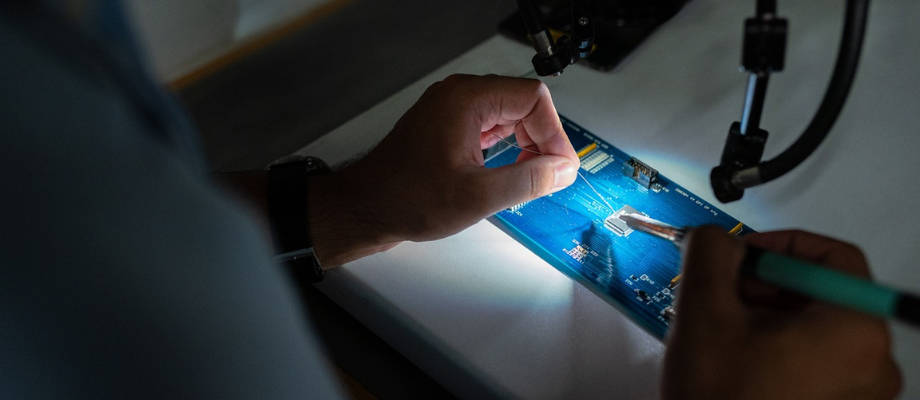The Hardware Engineer in the Age of the Internet of Things



With the rise ofInternet of Things (IoT), the role of the hardware engineer is being profoundly redefined. Formerly focused primarily on the design and optimization of circuits and components, the hardware engineer must now navigate an environment where connectivity and interoperability are at the heart of concerns.
IoT promises a radical transformation of our lives, with billions of connected devices constantly exchanging data, requiring new skills and a new vision to meet the challenges of safety, of miniaturization And of energy management.
In this context, hardware engineers are at a crossroads betweentechnological innovation And thesystemic integration, playing a crucial role in the realization of this new connected era. This article explores the new responsibilities, challenges, and opportunities for hardware engineers in the ever-changing Internet of Things landscape.
I. Understanding the Role of the Hardware Engineer
THEhardware engineer occupies a central place in the contemporary technological landscape, especially in the dynamic context ofInternet of Things (IoT). Trained in renowned institutions such as theINSA or Polytechnique, this expert in electronics and embedded systems masters a wide range of technical skills.
Its main responsibility lies in design and development of electronic systems, since the initial phase of computer-aided design (CAD) until the concrete realization of electronic cards. This expertise includes the precise handling of integrated circuits, the selection and integration of electronic components, as well as the optimization of electrical diagrams to ensure the performance and reliability of the devices.
In an environment where the demand for connected objects and autonomous systems is growing, the hardware engineer must not only have advanced skills in digital electronics and analogical, but also be able to solve complex problems related to connectivity, at the security And at the energy management. This ability to combine technological innovation and technical rigor is crucial to meet the requirements of diversified sectors such asaeronautical, the Home automation And thespace industry.
In addition, the hardware engineer often takes on the role of project manager Or ofsystem architect, supervising multidisciplinary teams in the realization of advanced technical solutions. This position also requires skills in project management And in communication, essential for collaborating effectively with embedded software developers, of senior technicians and other professionals as part of the electronic product development cycle. THEfunctional architecture systems must be carefully designed to ensure the consistency and effectiveness of the solutions proposed.

II. Technical Challenges in IoT for Hardware Engineers
The rise ofInternet of Things (IoT) poses complex technical challenges for hardware engineers, specialized in the design and development of advanced electronic systems.
- IoT Device Design and Development
- Miniaturization of components : Engineers need to integrate miniaturized technologies, such as microprocessors And the FPGA, to meet the growing demand for compact and portable devices.
- Management of energy consumption : Optimizing energy efficiency is crucial to extend the autonomy of IoT devices, requiring expertise in power electronics And in microelectronics.
- Connectivity and Communication Protocols
- Common protocols : Select and implement protocols such as Zigbee, Bluetooth Low Energy (BLE) and Wi-Fi to ensure reliable connectivity adapted to the specific needs of each application.
- Compatibility and interoperability issues : Overcoming the challenges of compatibility between different IoT devices and ensuring effective interoperability with other systems.
- Safety and Reliability
- System security risks : Protect data and prevent malicious attacks by integrating security solutions such as cryptography And the intrusion detection systems.
- Reliability of the systems : Ensuring the robustness and reliability of IoT devices through rigorous design and extensive testing of reliability of electronic components.
Hardware engineers who specialize in IoT should be experts in embedded electronics And in embedded electronic systems, capable of meeting technical challenges in terms of miniaturization, energy management, connectivity and security. Their role is crucial in creating innovative solutions that meet the growing requirements of IoT applications in sectors as diverse as aeronautics, home automation and the space industry.
Thus, in an ever-changing technological landscape, the hardware engineer embodies both the specialized technical expertise and the continuous innovation needed to advance the frontiers of modern electronic engineering.
III. Tools and Technologies Used by Hardware Engineers in IoT
Hardware engineers involved inInternet of Things (IoT) use a diverse range of tools and technologies to design and develop advanced electronic systems tailored to specific connectivity and performance requirements.
- Design and Simulation Software
- Computer-aided design (CAD) : Use of software such as Altium Designer or Cadence to design electrical diagrams and electronic boards.
- Circuit simulators : Tools such as SPICE (Simulation Program with Integrated Circuit Emphasis) to simulate the behavior of electronic circuits and optimize their performance.
- Innovative Materials and Components
- Advanced electronic components : Integration of microprocessors, sensors and actuators modern to improve the functionality and capabilities of IoT devices.
- State-of-the-art materials : Use of materials such as graphene for improved performances in terms of conductivity and resistance.
- Prototyping and Testing
- Rapid prototyping techniques : Use of technologies such as 3D printing and CNC milling to rapidly produce prototypes of electronic boards and cases.
- System testing and validation : Focus specific test benches to assess the performance, reliability and security of IoT systems before deployment.
By integrating these tools and technologies, hardware engineers in IoT can address the complex challenges of designing connected and autonomous systems. Their expertise in functional architecture, in electronic design, in circuit simulation And in use of innovative materials is essential for developing robust and reliable solutions that meet the growing requirements of IoT applications in various industrial sectors.ndent to the growing requirements of IoT applications in various industrial sectors.

IV. Prospects and Future of Hardware Engineering in IoT
The future ofhardware engineering In theInternet of Things (IoT) is promising, but also facing evolving challenges and opportunities, requiring constant adaptation to technological advances and the growing requirements of connected applications.
- Technology Trends
- 5G development : The introduction of 5G promises significant advances in speed and connectivity, opening up new possibilities for IoT devices.
- Embedded Artificial Intelligence (AI) : The integration of AI into embedded systems will allow for increased autonomous and decision-making capabilities for IoT devices.
- Future challenges
- Scalability and Mass Integration : Managing the increasing complexity of IoT systems while ensuring large-scale production is a major challenge for hardware engineers.
- Sustainability and eco-responsibility : The development of sustainable and energy-efficient IoT solutions is becoming a priority to meet environmental and regulatory requirements.
- Opportunities for Hardware Engineers
- New Market Niches : The expansion of IoT applications in sectors like connected health, smart cities, and precision agriculture is opening up new opportunities for specialized engineers.
- Career and Specialization Opportunities : The growing demand for experts in embedded electronics and IoT systems offers diverse career opportunities, from designing to managing complex technology projects.
Conclusion
In conclusion, thehardware engineer plays a critical role in the innovation and development of advanced electronic systems for IoT. These professionals combine expertise in functional architecture, in electronic design, in circuit simulation And in use of innovative materials to meet the technical challenges of connected systems.
In an ever-changing technology landscape, hardware engineers need to be prepared to exploit technology trends emerging technologies such as 5G and embedded AI, while navigating challenges such as scalability and sustainability. The opportunities for hardware engineering specialists are vast, with new market niches emerging and varied career perspectives, positioning these professionals as critical pillars of IoT innovation for years to come.
Spontaneous application
Are there currently no offers that match your profile? Share your spontaneous application with us!


.jpeg)

